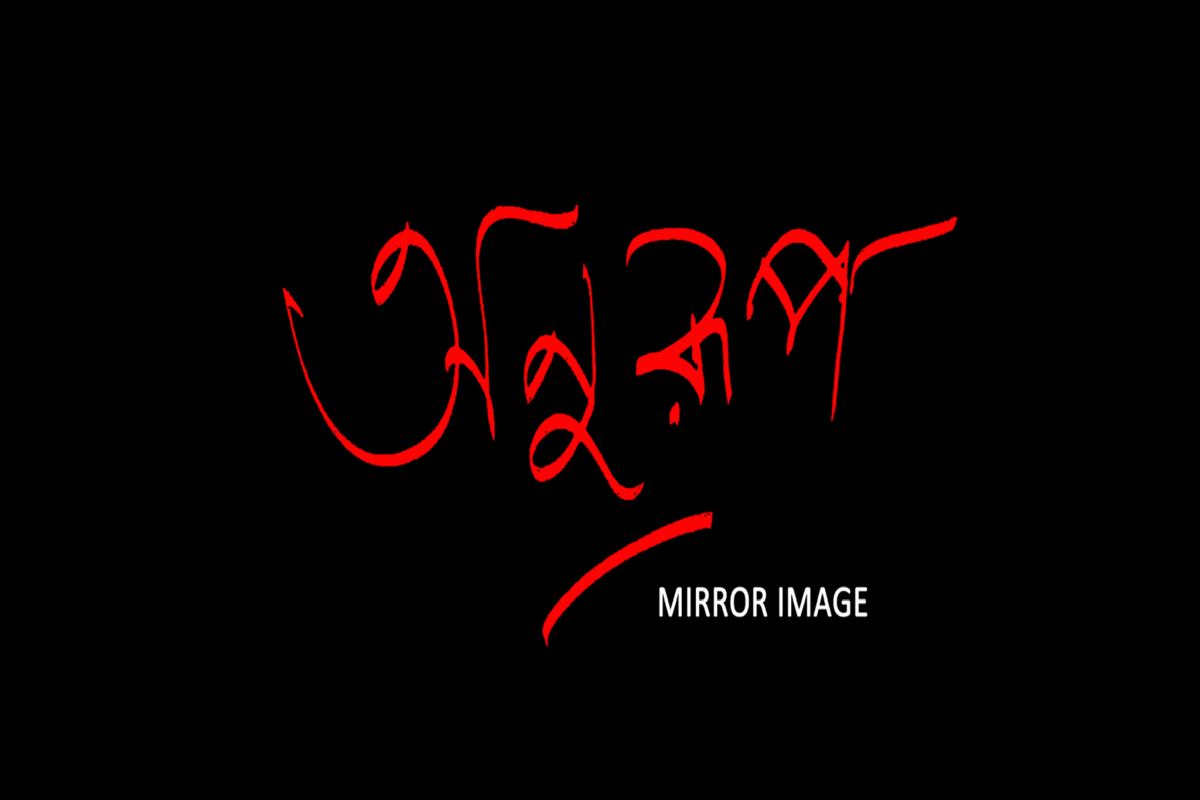Anurup means “mirror image.” In connection with Kankana Chakraborty’s new film screened recently at Nandan, it is an exploration of a father-daughter equation fraught with the debris of a relationship that went awry six years back.
It looks at the relationship from the emotional perspective of the father and the daughter and also offers a thirdperson view from a middle-aged lady who cares for the family and wants them to come together again.
Advertisement
Sabyasachi Chakraborty plays the alcoholic, lonely, forever angry, self-destructive father and Kankana plays the daughter, equally self-destructive with her life in a shambles. The backdrop is a dilapidated theatre in Siliguri, which actually exists and the focus too, is theatre.
The setting and production design are so incredibly real that one must commend the skill and aesthetics of art director Swapan Chakraborty. It is easier to recreate a “period” or someone’s palatial home with chandeliers hanging from carved ceilings but it is extremely difficult to design a “mess.”
But let us hear the story from the award-winning young filmmaker herself who lives in the US but often visits India when she has to make a film. She has already made several short films, each on a subject unique unto itself and one of them, Written By? has already won several awards in India and beyond.
“Anurup/ Mirror Image is not just a story about a father-daughter relationship; it is a universal story of any relationship that lacks the vocabulary to communicate. We often feel and expect that the other person (especially our loved ones), should know exactly how we are feeling.
When that’s not the case, expectations are hurt and we are disappointed. And, when we don’t communicate then we keep on adding to that layer of disappointments. We reach a point where no vocabulary can help us solve the situation,” Chakraborty says.
Wiser than her years, she also suggests a simple solution to this tragic decimation of a relationship. She says, “Just sit together and have a conversation and get over it. I specifically chose it to be a father daughter relationship, because I dedicated this movie to my dad. I am really close to my dad but at times we lack the vocabulary to communicate and pretend that everything is ‘fine’. That’s when my mother becomes the thread between us. But, what would happen if that thread was suddenly gone? This was the main reason I wrote Anurup / Mirror Image.”
About the miraculous “discovery” of the brilliantly realistic location, which lucidly reflects the two main characters and their relationship, Chakraborty says that when her location manager, Dipojyoti Chakraborty, was showing her some old theatres in Siliguri, she was not able to visualise the story in many of them.
“Then he showed me the dilapidated theatre of the Arya Samiti, which actually existed and was about to be pulled down and the ambience fit neatly into my script. I decided to shoot the entire film in Siliguri. It helped the film too as locations in North Bengal are always linked to tea gardens and I wanted the look to be different. And it worked,” she says.
The film opens in a messy room with an elderly theatre director (Sabyasachi Chakraborty) refusing to answer the loud knocks on his door by Arjun, (Sagardweep in a marvellous cameo), his faithful protégé who takes care of him.
The room is in a terrible state and he is constantly taking swigs from his flask. After dilly-dallying with this elderly gentleman’s mood swings and anger, the camera moves to capture a young woman in an equally messy room with the lady trying to splash colours on a canvas on an easel and then slashing the canvas with a knife.
She continues to smoke and breaks beer bottles on her way to the door. And so the narrative moves on, with a lady (Mithu Chakraborty) trying to fund the play they had given up on six years ago when the daughter ran away on the first night of their new show. How the reality of the daughter being the “mirror image” of her father gets established and tries to thread the fractured relationship together after the staging of that same play, this time directed by the daughter, defines the journey of the film.
Kankana Chakraborty says, “This is my second collaboration with Sabyasachi sir. It’s always a learning experience with him. His dedication and honesty is contagious. He brings in a different kind of energy on set. This was my first time working with Mithu Chakraborty. She is the mother figure. The honesty in her acting is the most precious thing. I learnt a lot from both of them. When one works with such veteran actors, one needs to be open to suggestions. Sometimes he had inputs and if it went with the character and made the scene better, it was totally appreciated… and there are many such inputs from Sir in this film.”
A group of youngsters from a theatre group in Siliguri played the characters in the play within the film. This adds a point of relief in an otherwise dark play and they do their parts well, both individually and collectively minus dialogue. The lighting and camerawork are attuned to the dark and unhappy mood of the film and yet, it does not depress the audience.
A little girl steps into the narrative around the middle to talk to the director who is lying outside the door of his house, on the street.
This touch is a fabulous innovation into the script with the little girl, her hair cropped close to the skull, in school uniform, asking him whether he will close down the theatre and requesting him not to do so.
The music by Joy Sarkar is moodcentric and low key, not trying to intrude into or dominate the father daughter scenario even once. It is as if Sarkar became “one” with the mood of the film and then began to write the music. What made her play the daughter Jinia herself?
Chakraborty who studied theatre in the US and is an actress herself, says, “The only character that I was really debating about was Jinia’s. This story is so close to my heart, so I only wanted to focus on direction. But people who know me insisted that I should be doing Jinia, because it’s an exact replica of me. The last person to convince me was my cinematographer Mridul Sen.”
Sadly, Anurup/Mirror Image will not have a theatrical release because it has a running time of 50 minutes, which theatres will not permit. But wait to catch it at the film festivals in Kolkata. You will not be disappointed.











